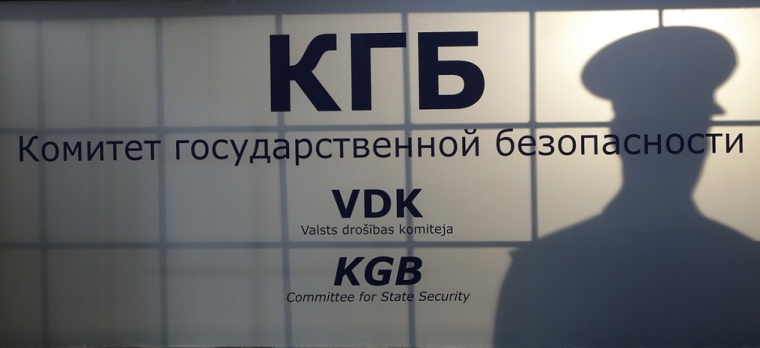Defector: 'Liberation Theology' a Soviet plot of the Cold War

WASHINGTON (Christian Examiner) – A communist official who defected to the United States at the height of the Cold War has claimed in an interview the KGB developed the powerful movement known as "Liberation Theology" as a means of wresting control of South America from the orbit of the Catholic Church and the influence of the United States.
Ion Mihai Pacepa, who served as a three-star general in Romania's Securitate, or secret police, told the Catholic World News May 1 that he first learned of the new theological movement from his "de facto boss," a Russian adviser to Romania named Gen. Aleksandr Sakharovsky – who served as the first chief director of the KGB from 1956-71.
In October 1959, Sakharovsky came to Romania for a six-day visit with Nikita Khrushchev, who had been named premier the year before. Khrushchev, Pacepa said, had not come to Romania for a six-day vacation.
"He had never taken such a long vacation abroad, nor was his stay in Romania really a vacation. Khrushchev wanted to go down in history as the Soviet leader who had exported communism to Central and South America," Pacepa told the Catholic news service.
It was during meetings with the Soviets that Pacepa first heard the term "Liberation Theology."
Liberation Theology has traditionally, though erroneously, been attributed to the literary work of Peruvian priest Gustavo Gutiérrez in 1971. His work focused on the salvation of the community through the correction of social and economic injustices arising from the manipulation of political systems. Sin was almost exclusively seen as abuse of the poor, the inequitable distribution of wealth and political conformity and oppression of the working class.
The movement's undercurrents began in the late 1950s in unions staffed largely by Catholic workers who leaned toward the leftist ideology of communism, as Pacepa now confirms. Since the 1970s, liberation theology has been adapted to create "Black Liberation Theology" and "Feminist Theology," aimed at upsetting the white and male power structures, respectively.
"The movement was born in the KGB, and it had a KGB-invented name: Liberation Theology," Pacepa said. "
"During those years, the KGB had a penchant for 'liberation' movements. The National Liberation Army of Columbia (FARC), created by the KGB with help from Fidel Castro; the National Liberation Army of Bolivia, created by the KGB with help from 'Che' Guevara; and the Palestine Liberation Organization (PLO), created by the KGB with help from Yasser Arafat are just a few additional 'liberation' movements born at the Lubyanka -- the headquarters of the KGB."
Pacepa said the Soviet Union, under the direction of the KGB, wanted to "take secret control" of the World Council of Churches (WCC), based in Geneva, Switzerland, and "use it as cover for converting Liberation Theology into a South American revolutionary tool."
At the time, Pacepa said, the KGB viewed the WCC as a prize worth having because it influenced the theology of 550 million Christians in 120 countries. Its first step in gaining control was to unify the South American bishops under the banner of the new theology. Pacepa said the KGB created the Christian Peace Conference (CPC), supported by the World Peace Council (also a KGB creation), and through the CPC it was able to organize the Latin American bishops for a meeting in Medellin, Colombia, in 1968.
The Conference of Latin American Bishops was born and, according to Pacepa, its "undeclared goal was to recognize a new religious movement encouraging the poor to rebel against the 'institutionalized violence of poverty, and to recommend the new movement to the World Council of Churches for official approval."
Both goals were achieved. Liberation Theology continued its steady growth through the 1970s, until Pope John Paul II was elected. A strong opponent of communism, John Paul II appointed conservative Catholic bishops in Latin America. Their opposition to communism was a prerequisite to their appointment.
The church also rejected the Marxist underpinnings of the Liberation Theology movement in 1984.
Pacepa's full interview with the Catholic News Service can be read at http://www.catholicnewsagency.com/news/former-soviet-spy-we-created-liberation-theology-83634/